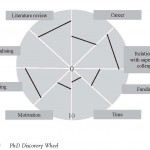Teke Ngomba – Challenges Of Urban Housing Provision In Lagos And Johannesburg
No comments yetafricafiles.org – In November 2010, UN-Habitat (the United Nations Human Settlements Programme) published a pertinent report on the state of African cities. The report confirmed that Africa is the fastest urbanizing continent in the world and that by 2030 “Africa’s collective population will become 50 percent urban” (UN-Habitat, 2010:1).
Apart from multi-storeyed buildings, traffic jams and street beggars, one of the central “faces” of Africa’s rapid urbanization in most if not all of its large cities is “non-standard, poor-quality housing units” (Kasarda and Crenshaw, 1991:479) which the UN calls “urban slums”. According to UN-Habitat (2010:4), Africa currently has a slum population of 199.5 million people and this represents “61.7 per cent of its urban population” (UN-Habitat, 2010:4).
As the scale of urbanization increases, the task of providing appropriate and affordable housing to the urban poor has persisted as one of the most intractable problems facing developing countries. In the wake of an unprecedented pace of urbanization in sub-Saharan Africa and a corresponding increase in urban poverty, how have African governments been handling this problem? What are the challenges they face and what are the chances of these governments living up to the ideal of having “cities without slums”?
Read more: http://www.africafiles.org/article.asp?ID=24844
You May Also Like
Comments
Leave a Reply





